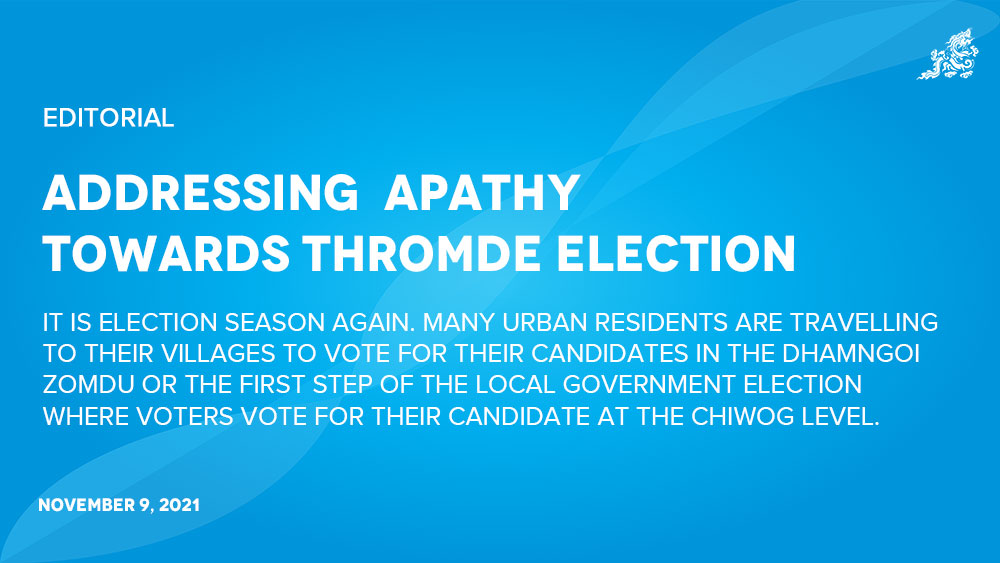It is election season again. Many urban residents are travelling to their villages to vote for their candidates in the dhamngoi zomdu or the first step of the local government election where voters vote for their candidate at the chiwog level.
In thromde election, thrompon candidates and thromde tshogde representatives are nominated from the demkhong through the zomdu.
While election officials are still conducting the zomdus and compiling the list of candidates aspiring to contest in the upcoming elections, reports indicate the number of candidates participating in local government (LG) elections are record high this time. All 17 gewogs in Mongar have a minimum of five candidates contesting as gup. A remote chiwog in Chudzom, Sarpang, has 10 candidates for the post of tshogpa. In Bumpazor chiwog in Mongar, there were five Gup candidates.
This is good. When there are more candidates, it offers choices to the people.
Without conventional postal ballot and facilitation booth services extended during the dhamngoi zomdu nominations, people have to go and vote in person. A family from Mongar has hired a taxi. Some supporters are hiring buses and arranging vehicles for people who would vote for their candidate.
Many civil servants, corporate and private employees are taking leave to go to their villages to vote in dhamngoi zomdu. They have no choice.
Given our rugged terrain and geographical location, extending postal ballot facilities during the dhamngoi zomdu has become crucial. When many people are showing interest in the local government elections, it is important that the right candidate is nominated from a chiwog.
While many assume it is the remunerations that attract more candidates in the LG elections, there are more things than financial incentives. ‘Asha Gups’ have been a public figure many of us grew up looking up to. As gewog tshogde members, mangmi and tshogpa have a huge responsibility in bringing developmental activities in villages. Budget allocation for gewog is almost 10 percent higher than dzongkhag.
However, voter participation for dhamngoi zomdu in thromde elections has not changed much. What is happening in Samdrupjongkhar is a repeat of the recent thromde elections in Thimphu, Gelephu and Phuentsholing last April. Empty chairs or two to three voters greeted the candidates and election officials during the meetings.
Thromde governance is important and people must take thromde elections seriously. Going by the capital budget allocations to thromdes, town residents should be allowed to participate in the election. For the fiscal year 2021-2022, Samdrupjongkhar thromde has about Nu 378 million budget and we need competent and capable representatives to utilise the budget meaningfully.
Our election officials cannot just close their eyes on the apparent apathy in thromde elections. When most thromde residents have no say in the election, there will be no excitement in the elections. It’s time we look into the law that allows only those with registered census in thromde to vote.


